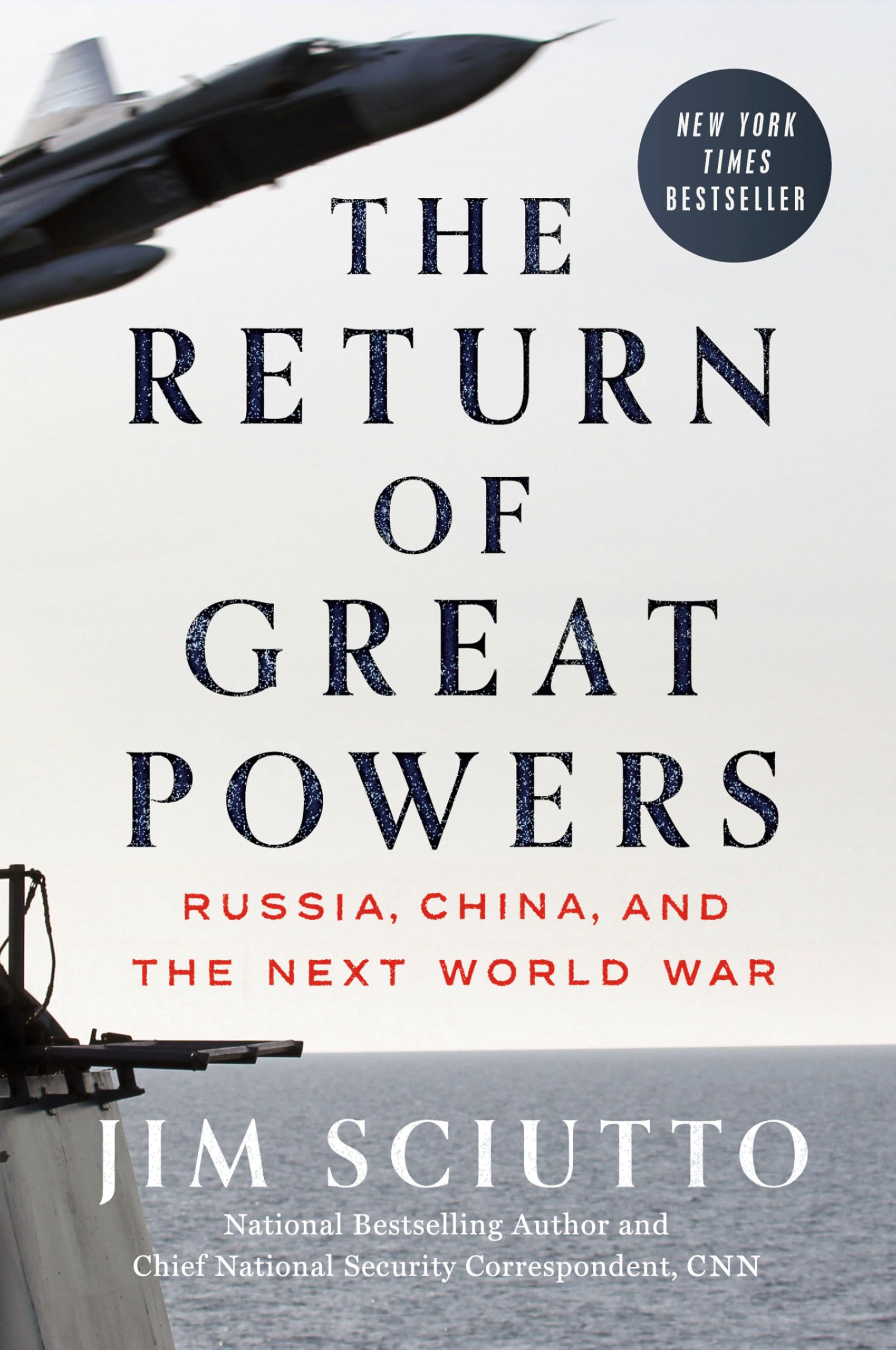

Jim Sciutto’s book, The Return of Great Powers: Russia, China, and the World War, argues unambiguously that the world has entered a new era of Great Power rivalry. This stretch is both similar to and distinct from the Cold War. Now, instead of a battle between the United States and the Soviet Union masked by competing ideologies, today’s struggle is a bare pursuit of strategic influence. This pits the United States and its allies against a belligerent Russia and China—revisionist powers aiming to regain their lost ground. They are driven by historic grievances over lost territories (Ukraine and Taiwan, respectively), which they claim as rightfully theirs.
According to Sciutto, Russia under Vladimir Putin will not be satisfied with absolute victory but rather with the fragmentation of Ukraine into NATO-aligned and Russia-aligned areas. In many ways, Russia’s war in Ukraine serves as a test case for China as it contemplates reclaiming Taiwan. This point from Sciutto is revealing, emphasizing the stakes of the Russo-Ukrainian war for other parts of the world as Great Power competition reemerges.
Furthermore, Sciutto ensures he doesn’t ignore “Middle Powers” and their roles as proxies. A prominent example is North Korea. Though The Return of Great Powers was penned before the recent Russia-North Korea pact, Sciutto discusses events leading up to this alliance. With fewer European satellite states due to NATO expansion (most recently by Finland), Russia has turned its sights to Asia and the Middle East.
Sciutto also examines structural differences in society and military forces between the West and the new Russia-China axis. He suggests that Western democracy's strength lies in its diversity of thought, while Russia and China risk stagnation due to formalized thinking structures. Militarily, though, it’s reversed; European forces under NATO may operate rigidly, while Russian forces act more unpredictably—creating perceived threats. These dynamics' strategic implications are not overlooked.
Despite these flaws, The Return of Great Powers is worthwhile for those seeking analysis on how aggrieved emerging powers aim to reclaim what they believe is their rightful place in global affairs.
Szabolcs Veres is a researcher at the Eurasia Center
Publisher: Dutton
Publication date: 2024
ISBN: 978-0593474136
Pages: 368